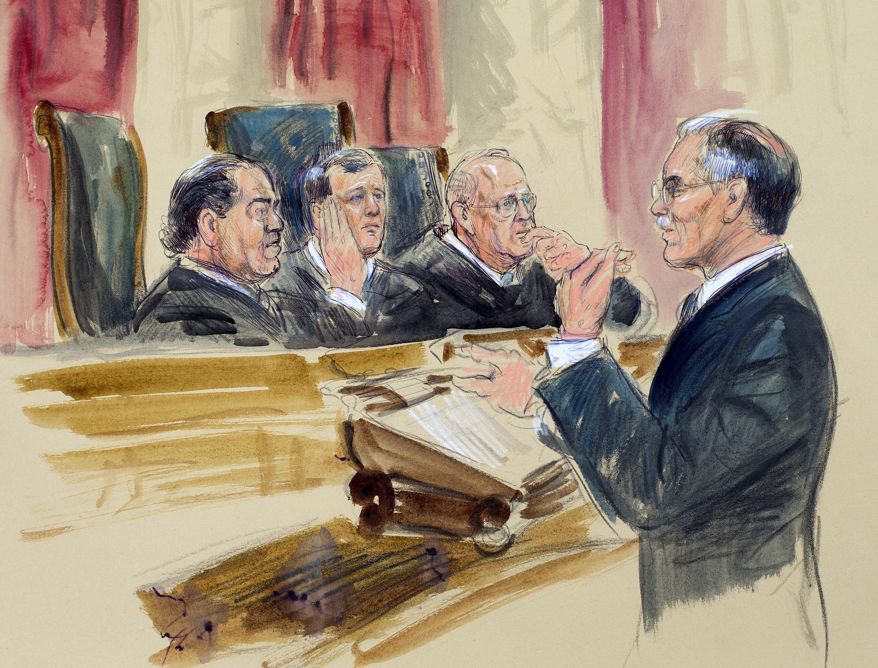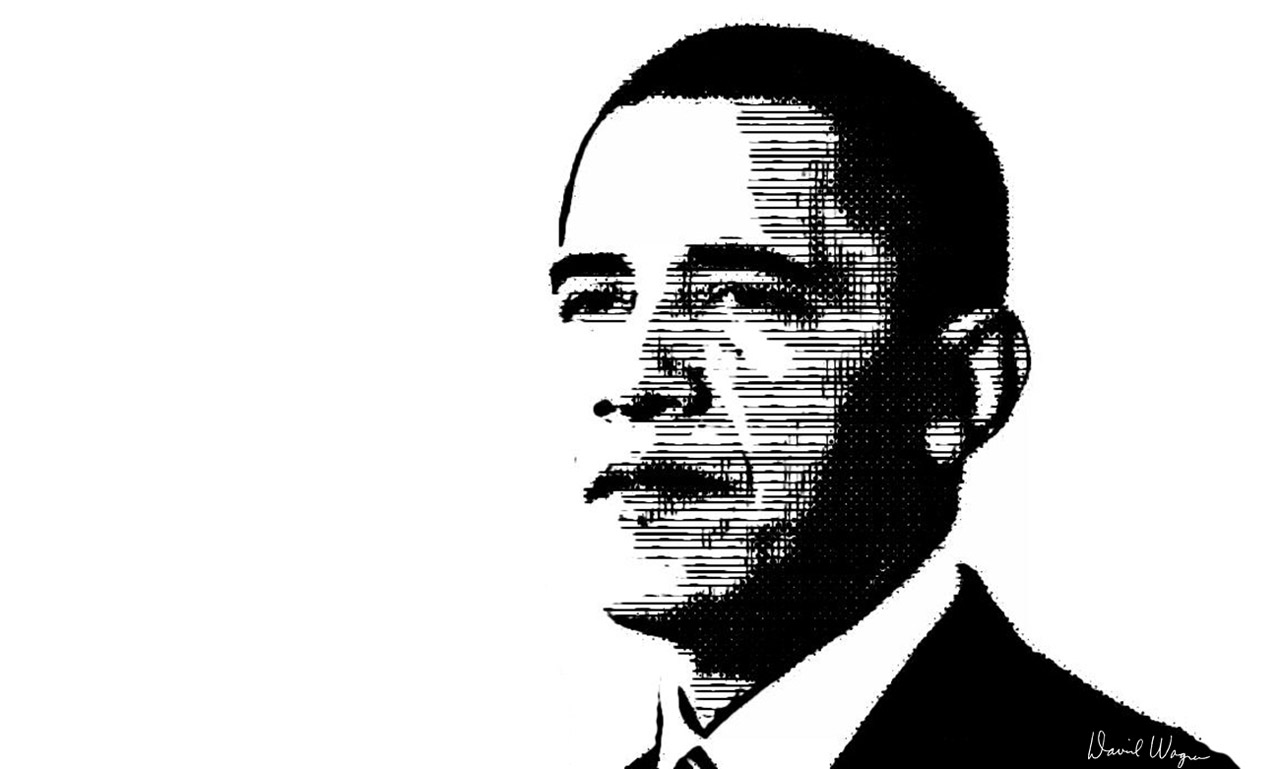I was fortunate to be a part of many great moments, in and out of the Supreme Court’s chambers, during my tenure as Solicitor General in the administration of President Obama. But of all the great moments, the one that means the most to me occurred at the end of a grueling three days of oral argument in the historic Health Care Case, when I spoke these words:
The Medicaid expansion that we are talking about this afternoon and the provisions we talked about yesterday, we have been talking about them in terms of their effect as measures that solve problems, problems in the economic marketplace, that have resulted in millions of people not having health care because they can’t afford insurance.
There is an important connection, a profound connection, between that problem and liberty. And I do think it’s important that we not lose sight of that. That in this population of Medicaid eligible people who will receive health care that they cannot now afford . . . there will be millions of people with chronic conditions like diabetes and heart disease, and as a result of the health care that they will get, they will be unshackled from the disabilities that those diseases put upon them and have the opportunity to enjoy the blessings of liberty.
And the same thing will be true for a husband whose wife is diagnosed with breast cancer and who won’t face the prospect of being forced into bankruptcy to try to get care for his wife and face the risk of having to raise his children alone. And I can multiply example after example.
In a very fundamental way, this Medicaid expansion, as well as the provisions we discussed yesterday, secure the blessings of liberty. And I think that that is important as the Court’s considering these issues that that be kept in mind.
As I made that statement, the Affordable Care Act appeared to be hanging by a thread. The argument a day earlier on the constitutionality of the Act’s so-called “individual mandate” had not gone well at all. Hostile questions came at a furious pace, and my handling of them had ignited a vortex of public criticism. Overnight, conventional wisdom had congealed around the prediction that the Court would strike down the mandate, and with it the market reforms that would have made affordable health care available to millions of Americans whose pre-existing conditions had locked them out of the health insurance market. As devastating as that would have been, by the time the last day of argument had drawn to a close, the Act’s prospects appeared even bleaker. Earlier that day, during questioning about “severability” (i.e., if the Court declared the mandate invalid, how much of the rest of the Act would fall with it?), a majority of the Justices seemed poised to wipe out the entire Act—the Medicaid expansion that offered the prospect of affordable health care to tens of millions more Americans, the Medicare reforms, everything.
I am under no illusion that my closing statement made the difference on the Court’s ultimate decision. At that point, I wasn’t trying to offer a finely calibrated argument designed to sway one Justice or another to my side. Rather, with the Affordable Care Act hanging in the balance, I thought the moment demanded a statement, in the clearest possible terms, of what was at stake.
Throughout the three days of argument, those challenging the Act had laid claim to the mantle of liberty. As the argument drew to a close, they appeared to have succeeded in framing the case as a contest between the liberty protected by the Constitution’s guarantee of limited government and the handiwork of out-of-control policy wonks who sought to displace private choice with oppressive bureaucratic diktat (that is why the so-called “broccoli horrible” was so effective; it captured precisely this sense of things). I could not let that stand. The Health Care Case did not ultimately pit claims of liberty against claims of policy expertise. At bottom, it was a case about what our Constitution means when it speaks of “securing the blessings of liberty.” Do we secure liberty solely by restraining the federal government’s power or may the government use its allocated authorities to create the conditions that make it possible to enjoy liberty’s blessings? I was consciously evoking a conception of liberty that stretches back at least to the New Deal and FDR’s Four Freedoms. I hoped that doing so would help our case by reinforcing the salience of the settled jurisprudential understanding that, within wide margins, it should be up to the politically accountable branches to work out the right balance between these dueling conceptions of liberty. But if we were to lose, it was imperative that there be no ambiguity about what that loss would signify, both for our jurisprudence and for the lives of so many Americans. Fortunately, a majority of the Justices agreed with our understanding of the Constitution, and thousands of people (inside the government and out) then put their shoulders to the wheel to make the promise of affordable health care a reality for tens of millions of Americans.
Of course, the Constitution speaks not simply of securing the blessings of liberty but of doing so “for ourselves and our posterity.” As I write these words, the blessings of liberty that the Affordable Care Act secures once again appear to be hanging by a thread—threatened this time by the prospect of legislative repeal once Donald Trump assumes the presidency. So this moment too demands clarity.
As high as the stakes were in 2012, they are higher now. Should the Congress and the new President take the fateful step of dismantling the Act now that it has gone into effect and done so much to improve the lives of so many Americans, they will have much to answer for. They will have to answer for ending life-saving treatment for mothers with breast cancer who will die without that treatment and leave behind grieving children and spouses; for ending ongoing care that makes it possible for those with diabetes, heart disease and other chronic conditions to live full lives and avoid the ravages that these conditions would otherwise inexorably inflict; for extinguishing the guaranteed availability of preventive care that would ensure that children never develop such debilitating conditions in the first place. Just as important, they will have to answer for upending the financial and emotional security that the law’s very existence provides to millions of Americans; to parents who thought that they would never again have to worry that, if anything happened to them, their children with conditions like multiple sclerosis would be unable to get the care they need to live a full life; to entrepreneurs who left a secure job with employer-sponsored health care to pursue their dreams, thinking that they could rely on the Act’s guarantee of insurance to protect their families; and to so many others who would otherwise live one serious illness or accident away from financial ruin.
What a cruel irony to tell these millions of Americans (and their children and spouses) that extinguishing their access to affordable health care will restore their liberty. And the irony is obviously not lost on those rushing to repeal the Act. That is why they go on and on about “high risk pools,” “health savings accounts” and other policy fig leaves that in the real world have never come close to covering over the yawning chasm in coverage that their actions will restore, and that they will never fund at levels sufficient to allow more than a tiny fraction of those now covered to stay covered—and that don’t even purport to offer anything at all to the more than 10 million poorer Americans who now receive care as a result of the expansion of Medicaid. They know full well how implausible it is to justify such consequences as the price that must be paid to vindicate their conception of liberty. So they deny and distract instead.
If there is a glimmer of hope, it lies in these efforts to deny the obvious. For they reveal the power of what we stood for—of what we stand for. The Affordable Care Act proves that we as a people were able to summon the imagination, the ability, and the will to make access to good health care a right for virtually all Americans, and that we were able to do so while respecting the limits that the Constitution places on government to protect the liberty of all. Like any undertaking of this magnitude, it requires some adjustments to ensure smooth functioning over time. But the reality is that the Act is now providing affordable health care to tens of millions of people who did not have it before. To strip these Americans of the prospect of a full life freed from the shackles of debilitating disease (and to snatch away from many thousands the chance to continue to live at all) would make a mockery of the constitutional promise of the blessings of liberty.
Whatever comes next, the reality of what we did will always stand as a beacon to those who come after us. We have secured at least that much to our posterity. And for the moment one can hope that when those in the democratically accountable branches of government who seek to extinguish the right to affordable health care are forced to come face to face with the grievous and completely preventable harms that their actions will inflict on so many of their fellow citizens, they will be moved to think differently than they now do about what it means to secure the blessings of liberty.
Mr. Verrilli served as Solicitor General of the United States under President Obama from 2011 to 2016. He previously served the Obama administration as Associate Deputy Attorney General and Deputy Counsel to the President.
The courtroom artist rendering at the top of this post shows Mr. Verrilli, speaking before the Supreme Court. (Associated Press/File).




